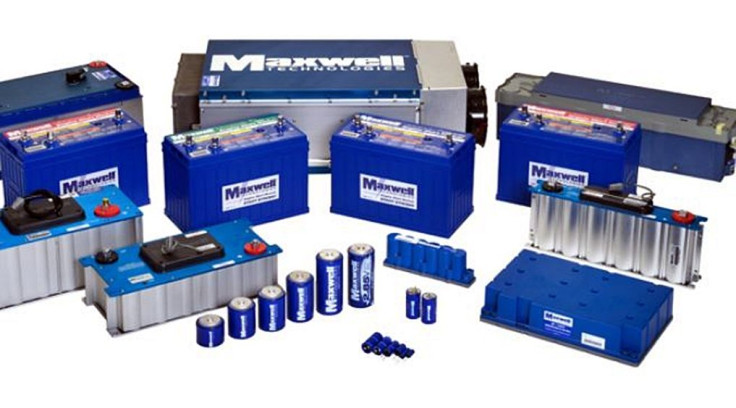Elon Musk’s Tesla Buys Maxwell To Develop Supercapacitors For Electric Cars

In 2011, Elon Musk predicted that supercapacitors, not batteries, will power future electric vehicles (EVs) such as those being produced in massive numbers by his Tesla, Inc.
On Monday, Musk took a huge gamble to make the gigantic leap forward that will see supercaps replace batteries in future EVs. Musk announced that Tesla will acquire Maxwell Technologies, a firm based in San Diego, California that makes supercapacitors (or ultracapacitors), which store and deliver energy much the same way a battery does but provides more power and shorter charging times.
“I'm a big fan of ultracapacitors,” Musk once tweeted.
In a statement announcing the Maxwell Technologies acquisition, Tesla said it’s always looking for potential acquisitions that make sense for the business and support Tesla’s mission to accelerate the world’s transition to sustainable energy.
Improved power storage such as those provided by supercaps is essential to two of Tesla’s main products: its battery-powered Tesla electric sedans and Tesla Powerwall, a battery system used for back-up power in homes. Panasonic Corporation of Japan is the exclusive lithium ion battery supplier for Tesla sedans.
Maxwell Technologies' customers include General Motors and Lamborghini. It makes supercaps used in automobile batteries to extend their service lives. Supercaps are also used to store massive amounts of electricity in national power grids.
Combined with the energy of batteries, ultracapacitors can enable rapid response times, extend operational temperature range and lengthen battery life by up to two times, according to a Maxwell Technologies. Supercaps hold energy in an electrical field and not in chemical form.
Future supercaps, however, will charge a lot faster than lithium-ion batteries (a few minutes compared to 8 hours); will be cheaper (because they’ll be made from non-metal polymers) and will be inflammable. The only problem with supercaps is they can hold a tiny electric charge, and this for only a few minutes.
As it stands today, the maximum charge that can be held by supercaps today is a puny 10 Wh/kg, which is about 5 percent of the full charge held by a Li-ion battery of the same weight. This means one would need a supercap the size of a shipping container to power a Tesla Model 3 sedan, for example.
Massively boosting the charge held by supercaps while seriously reducing supercap size will likely be the key problem Musk wants solved with his acquisition of Maxwell Technologies.
Musk has always made known his views that supercaps are a better bet for an electric tech breakthrough in EV technology compared to batteries. Musk even tweeted he “Was going to do my PhD at Stanford on them. But we need a breakthrough in energy density.”
© Copyright IBTimes 2025. All rights reserved.




















